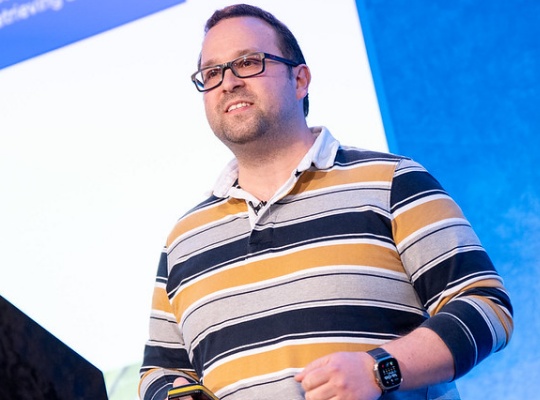Codetown
Codetown ::: a software developer's community
Freelancing - You Better Believe I'm Multi-Lingual!
There's a new book out called Programming F#
Well, here's what you get when you become multi-lingual: you get more work! Are you a freelancer? Are you a little depressed with the state of the market these days? Does it blow? I can think of several similar adjectives to describe the state of affairs with opt-in work. What do I mean by opt-in? That's stuff that in-house staff can do without sacrificing year-end bonuses, holiday parties and perks to outside contractors. Given the choice, what would you do?
On the other hand, how's your Python? Check out the jobs here on the Python dot org jobs list. Ruby-ista? Do these make you feel better? And, Java dudes have some options these days, too. That's just a few languages, not to mention the .Net suite and a host of others.
Does that make you happier? How about if you're not a freelancer. You're in-house staff. You say, what's learning a new language going to do for me? Well, different languages have unique features. Pythonistas say "Life's better without braces" Ever hear that? Wonder what they're talking about?
All this stuff about functional languages is interesting. Now, Microsoft has come out with F#. What's the big deal about functional languages? One way to find out is to see some code. It truly broadens your horizons to learn new tricks. And, if you think your role is dull, try spicing it up with a new language that might cooperate with what you're running now.
Comments?
Tags:
Replies to This Discussion
Notes
Welcome to Codetown!
 Codetown is a social network. It's got blogs, forums, groups, personal pages and more! You might think of Codetown as a funky camper van with lots of compartments for your stuff and a great multimedia system, too! Best of all, Codetown has room for all of your friends.
Codetown is a social network. It's got blogs, forums, groups, personal pages and more! You might think of Codetown as a funky camper van with lots of compartments for your stuff and a great multimedia system, too! Best of all, Codetown has room for all of your friends.
Created by Michael Levin Dec 18, 2008 at 6:56pm. Last updated by Michael Levin May 4, 2018.
Looking for Jobs or Staff?
Check out the Codetown Jobs group.
InfoQ Reading List
MySQL 9.6 Changes Foreign Key Constraints and Cascade Handling

MySQL is changing the way foreign key constraints and cascades are managed. Starting with MySQL 9.6, foreign key validation and cascade actions are handled by the SQL layer rather than the InnoDB storage engine. This will improve change tracking, replication accuracy, and data consistency, making MySQL more reliable for CDC pipelines, mixed-database environments, and analytics workloads.
By Renato LosioVercel Releases React Best Practices Skill with 40+ Performance Rules for AI Agents

Vercel has launched "react-best-practices," an open-source repository featuring 40+ performance optimization rules for React and Next.js apps. Tailored for AI coding agents yet valuable for developers, it categorizes rules based on impact, assisting in enhancing performance, bundle size, and architectural decisions.
By Daniel CurtisKubernetes Introduces Node Readiness Controller to Improve Pod Scheduling Reliability

The Kubernetes project recently announced a new core controller called the Node Readiness Controller, designed to enhance scheduling reliability and cluster health by making the API server’s view of node readiness more accurate.
By Craig RisiPresentation: Platforms for Secure API Connectivity With Architecture as Code

Jim Gough discusses the transition from accidental architect to API program leader, explaining how to manage the complexity of secure API connectivity. He shares the Common Architecture Language Model (CALM), a framework designed to bridge the developer-security gap. By leveraging architecture patterns, engineering leaders can move from six-month review cycles to two-hour automated deployments.
By Jim GoughMicrosoft Open Sources Evals for Agent Interop Starter Kit to Benchmark Enterprise AI Agents

Microsoft's Evals for Agent Interop is an open-source starter kit that enables developers to evaluate AI agents in realistic work scenarios. It features curated scenarios, datasets, and an evaluation harness to assess agent performance across tools like email and calendars.
By Edin KapićSwitch to the Mobile Optimized View
© 2026 Created by Michael Levin.
Powered by
![]()